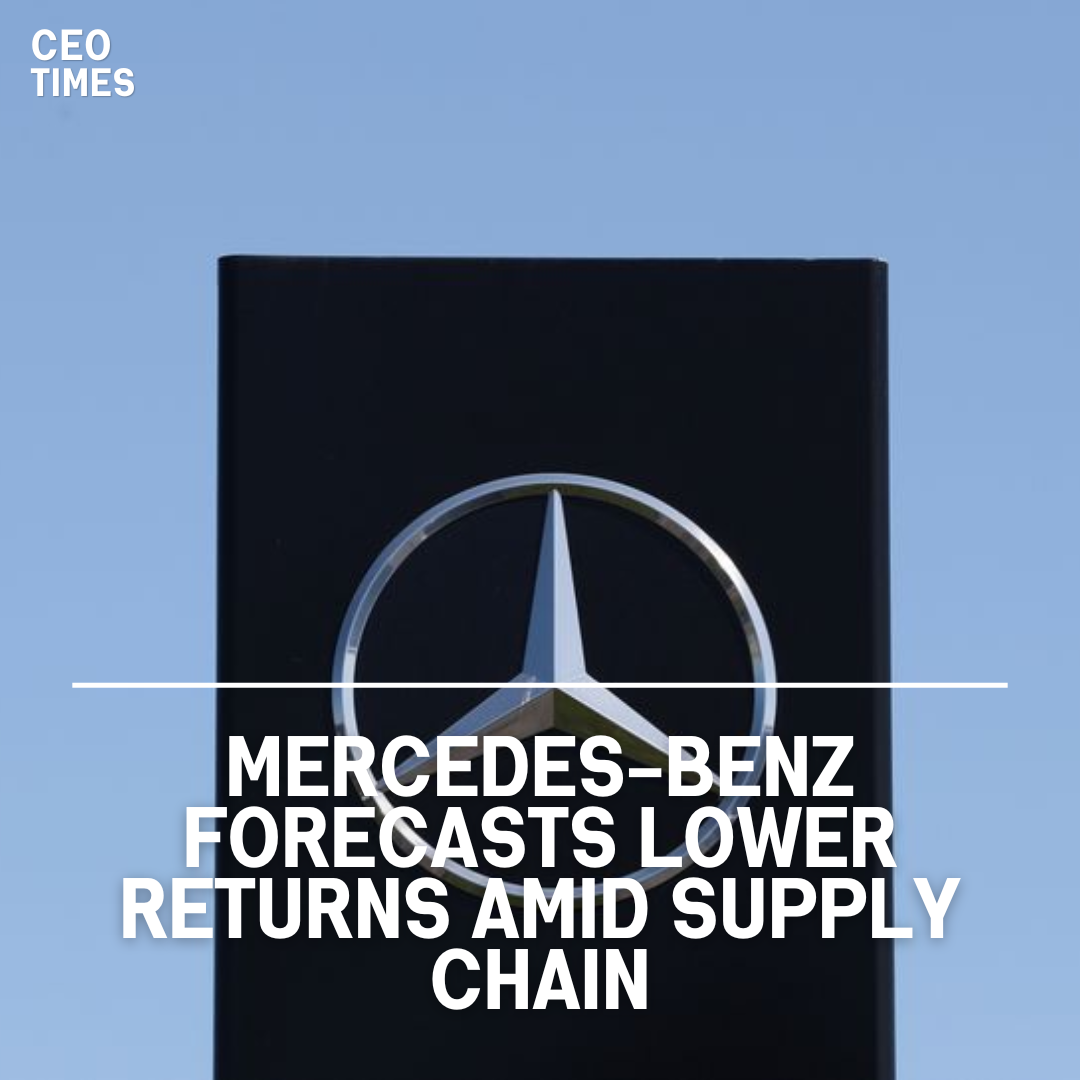Mercedes-Benz, a leading luxury carmaker, reported an adjusted return on sales in its car division for 2023, meeting expectations at 12.6%.
However, the company anticipates lower returns for 2024 due to persistent inflation and supply chain disruptions, projecting 10-12% for cars and 12-14% for vans, down from the previous year’s 15.1%.
Profitability Challenges Amid Inflation and Supply Chain Issues:
Inflation and supply chain-related costs have impacted Mercedes-Benz’s profitability, leading to tighter margins and lower returns.
The carmaker faced supply snags and pricing pressures, especially in the electric vehicle segment, which strained margins and affected sales performance throughout 2023.
Also Read: Biden Administration Escalates Pressure on Chinese Chipmaker Over Huawei Links
Strategic Response and Pricing Adjustments:
Despite challenges, Mercedes-Benz implemented a strategy to mitigate cost pressures by passing higher expenses to customers.
The company raised its average price by 2% to 74,200 euros and continued investing in research and development for future technologies, including the MB.OS platform aimed at enhancing innovation and competitiveness.
Performance and Comparative Analysis:
As the first of Germany’s top three carmakers to announce 2023 results, Mercedes-Benz is expected to maintain a competitive returns margin, reflecting its proactive approach to addressing market challenges.
While group earnings before interest and taxes declined to 19.7 billion euros from 20.5 billion euros, revenue saw a modest increase of 2%.




















